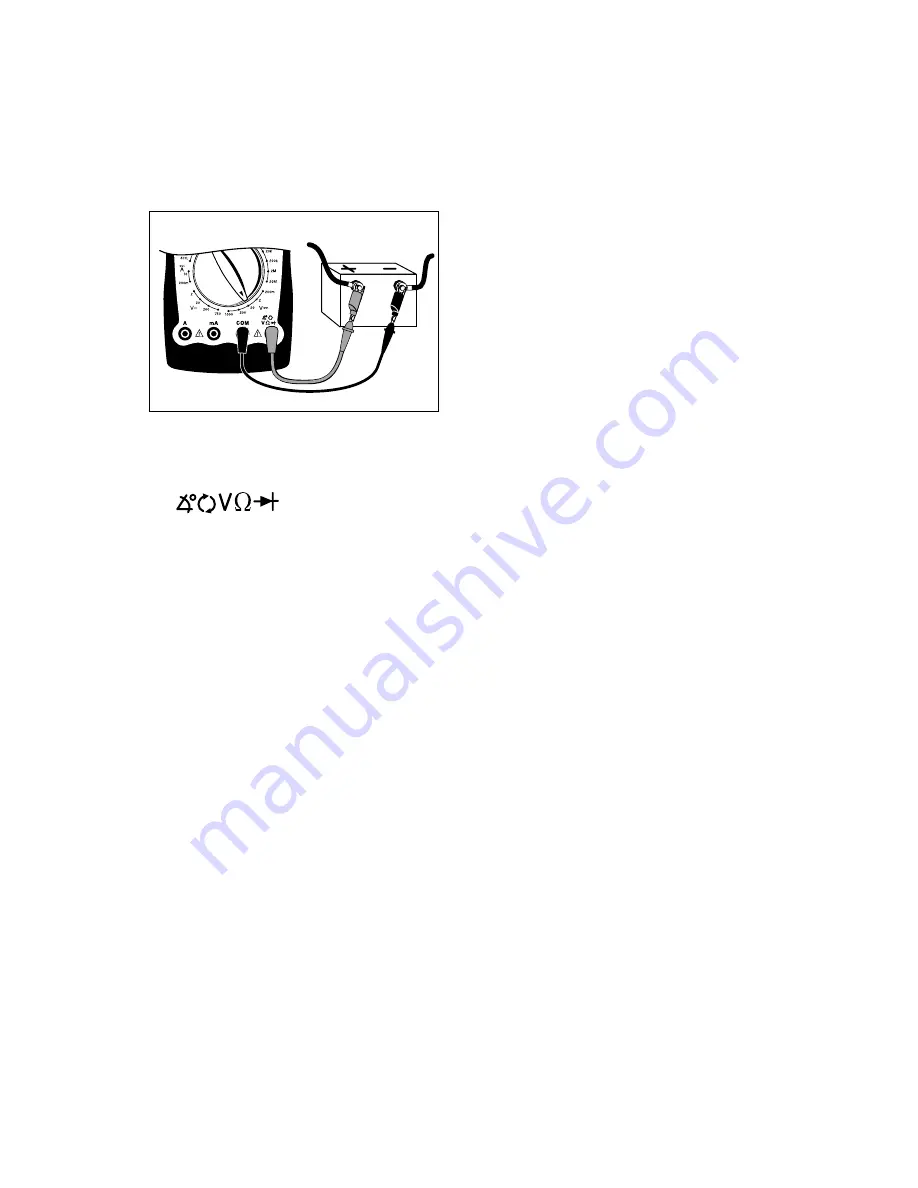
18
8. Open throttle and Hold engine
speed (RPM) between 1800 and
2800 RPM.
Hold this speed through Step 11 -
Have an assistance help hold speed.
9. View reading on display.
Voltage reading should not change
from Step 7 by more than 0.5V.
10. Load the electrical system by turn-
ing on the lights, windshield wip-
ers, and setting the blower fan on
high.
11. View reading on display.
Voltage should not drop down below
about 13.0V.
12. Shut off all accessories, return
engine to curb idle and shut off.
13. Test Results.
• If voltage readings in Steps 7, 9,
and 11 were as expected, then
charging system is normal.
• If any voltage readings in Steps 7,
9, and 11 were different then shown
here or in vehicle service manual,
then check for a loose alternator
belt, defective regulator or alterna-
tor, poor connections, or open al-
ternator field current.
• Refer to vehicle service manual for
further diagnosis.
This test checks the charging system to
see if it charges the battery and pro-
vides power to the rest of the vehicles
electrical systems (lights, fan, radio etc).
Test Procedure (see Fig. 23):
Fig. 23
Red
Black
1. Insert BLACK test lead into COM
test lead jack.
2. I n s e r t R E D t e s t l e a d i n t o
test lead jack.
3. Connect RED test lead to positive
(+) terminal of battery.
4. Connect BLACK test lead to nega-
tive (-) terminal of battery.
5. Turn multimeter rotary switch to
20V DC range.
6. Start engine - Let idle.
7. Turn off all accessories and view
reading on display.
• Charging system is normal if dis-
play reads 13.2 to 15.2 volts.
• If display voltage is not between
13.2 to 15.2 volts, then proceed to
Step 13.
Charging System Voltage Test
















































